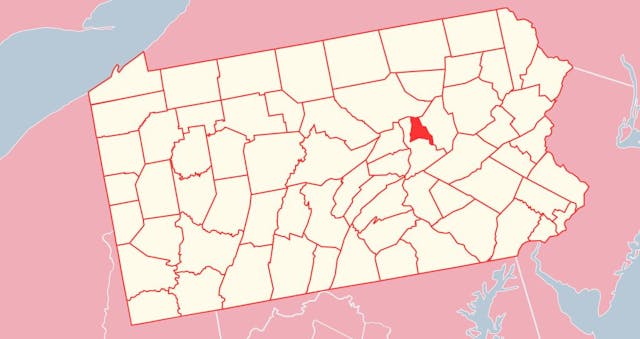Rehabs in Montour
Pennsylvania's Commonwealth includes Montour County. 18,267 people live there as of the 2010 Census. Danville serves as the county seat.
Montour shares issues with other areas of the state, namely substance abuse. As soon as addiction becomes clear, it is necessary to get help. It could be difficult to overcome addiction alone, though. Many people search for recovery centers as a result.
The article will reveal the whole necessary information about Montour county rehabs and the programs that they offer.
Substance Abuse Treatment
Even if substance abuse is a regular and ongoing issue, people might discover that they can only get better if they enlist in a long-term recovery plan. They should get professional help and support.
There are several options available for those in need of care in today's drug and alcohol rehab centers. Based on the individual’s particular needs and preferences, these options range in length and location.
Even though they may find comfort in attending short-term therapy for a period of 28 to 30 days, they will find that long-term care is more effective. Every clinic offers PHP, detox, inpatient and outpatient regimens, and other choices.
Detoxification
Detox refers to the process of physically stopping the use of a substance. It also refers to the intervention in cases of physical dependence. The programs are designed to make the withdrawal process less difficult. It also describes a person's term of abstinence from a certain substance. The major goal is to rid their bodies of the poisons and substances related to drug use.
Clinics often combine detox with counseling to aid patients in defeating their addictions. It is important to do this because it allows individuals to better understand their reliance. It helps them to build the base for recovery.
Inpatient Rehab
Although the length of healing varies from clinic to clinic, inpatient therapy is offered at a residential facility. Here patients often stay for one to three months. A secure, quiet, safe, and drug-free atmosphere is what makes residential rehab so tonic.
Patients can benefit from a peer group of other patients who are in recovery and who can provide guidance, support, and company. As well as 24-hour medical help and a variety of amenities meant to mend the body and mind.
Outpatient Rehab
People in an outpatient plan attend healing sessions when they have free time while continuing to live their usual life. Outpatient rehabilitation gives patients the most flexibility while offering them a high level of care.
Too often, people who need care for addiction do not get it because it would mean taking a lot of time away from their families, jobs, or studies. Teens and adults can complete recovery with flexibility without delaying their duties.
Many procedures are used in this plan, including professional psychotherapy, group conversations with peers, and counseling. As well as they include services, peer group support, occupational therapy, and marital and cognitive therapy.
Partial Hospitalization Program
After finishing a residential plan, the next stage is a partial hospitalization program. Patients have several weeks to get used to living at home while still receiving therapy for 6 to 8 hours per day, three to five days per week.
They must have a stable home environment that won't obstruct their recovery. Also, they must be able to refrain from drugs and alcohol with little guidance to transition to PHP.
Free Rehabilitation
Care for drug and alcohol abuse is expensive and hard to get, especially without insurance. For those in need, a lot of treatment centers in Pennsylvania provide free or inexpensive plans.
There are multiple methods to pay for healing. So, these clinics can offer rehab plans to people without health insurance. They help those who face other financial barriers.
Based on the treatment center, these techniques include non-profit organization funding, grant programs, private scholarships, and sliding-fee payment scales. Federal funding such as Medicaid, Medicare, or Tricare can be considered, too.

